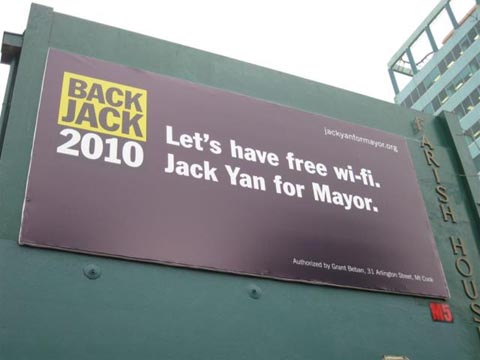 In plain English, when a city is hundreds of millions of dollars in debt—depending on who you believe, the figure is between $200 million and $400 million—how do you get out of the hole?
In plain English, when a city is hundreds of millions of dollars in debt—depending on who you believe, the figure is between $200 million and $400 million—how do you get out of the hole?
1. You can sell the family jewels, and there’s water left. We tried this in the 1980s, and now so many foreigners own New Zealand companies that the profits go offshore and we lose a source of tax revenue. Not good, doesn’t work.
2. You can put up the rates for residents to the tune of 5·58 per cent and hope they cover some of this. (The figure was 5·5, then 5·75—so much for transparency.)
3. You can keep praying that the Rugby World Cup will give a temporary boost and hope no one notices that the other years aren’t as prosperous.
4. You can look at what the city has in terms of creativity and intellectual capital, and build on that, especially if the world values the innovative thinking of New Zealanders.
Of the four, I prefer (4). This present mayor and council favour (2) and locked in that rise for us a wee while ago.
I know in some circles my name has become associated with the free wifi for the central city promise, but it goes a bit deeper than that.
Free wifi is like having roads in a city in the 21st century, and right now, what we have is like paying tolls on every single road we drive on.
Compare this to Finland, who enshrined in law the right to broadband, which became effective yesterday (July 1). This means every citizen in Finland has a legal right to having broadband at a minimum speed of 1 Mbit/sec. With netbooks and cloud computing on the rise, this seems to be the logical thing to do. The old ways of having programs on your computer are disappearing.
Get the infrastructure right—after all, Singapore and numerous US cities have done it, and Wellington has to play catch-up with Dunedin and Whanganui—and we can get other things right.
The sectors that have the greatest potential in the 2010s, and in my mind are the biggest earners for New Zealand companies, are the tech and creative sectors. Both rely on the ’net and a more visionary direction for Wellington in a huge way.
Clustering, mentoring and financing are the things we need to do, and they have to be driven from the top. Some are done through lobbying by a business-minded, pro-Kiwi mayor and council (rather than a pro-foreigner one). Others can be driven through council itself. But we need a shake-up in order to do this.
They are all possible solutions, and some are happening now at an ad hoc level.
I’d want to help those companies that are Kiwi-owned or will remain majority Kiwi-owned—this helps with job creation, with the city’s rates and with the country’s tax take. And if Wellington becomes a centre for this activity in the 2010s and demonstrates that we are an advanced economy, who knows what else we can inspire around the nation?
It’s not an overnight solution. But I know we have businesses out there that can generate millions for the New Zealand economy. Thanks to our social consciousness, many are sustainable. We already have examples in businesses I’ve cited many times before: the Sidhes, Wetas, Silverstripes, Catalysts of this world are creating jobs for Wellington. We just need to expand on that and stimulate innovation.
Equally important are the need for transparency and changing the culture within the Wellington City Council, topics for other posts.



WCC has debt of $370mln and assets of $6.2 bln. Income last year was $369mln.
Finance expenses were $22mln (6% of income), but there is also an income from leases and investments which offset this.
So why do you think we have a debt problem? And how would the city be materially better off if debt-free?
Go Jack! You;d have my vote if I lived in Wellington (and didn’t just work there)
I would seriously move to Wellington from the Hutt just so I could vote for you.
Fast cheap wifi is essential and Welly can’t be the “Creative city” or even a successful commercial and intellectual workplace without it.
We are so far behind other countries it is scary.
Rich, the figures we have are fairly conservative and there are some who believe that the debt is far higher than either of us have dared state. Without getting into all the maths, for starters, the city would be materially better if we weren’t having to raise the rates to cover the shortfall, or the interest payments. People would want to stay in Wellington, rather than looking at heading to other locales.
Mundens and Label, thank you both!
Momma, you are so right here. I can’t believe how some of my opponents have actually said free wifi is unimportant. If we say we are a creative city, and the sale of netbooks is rising, then not having the basic infrastructure seems to signal that we are hypocrites.
Wellington made a statement about being the creative capital just before the “dirty weekend” ads broke nationally on TV—that shows the lack of unity the powers that be have over our message. And, really, it’s been like that over the last nine years. What Wellingtonians I talk to want is a creative, world-class capital that can move forward in the 2010s with clarity and pride.